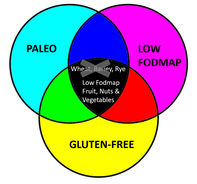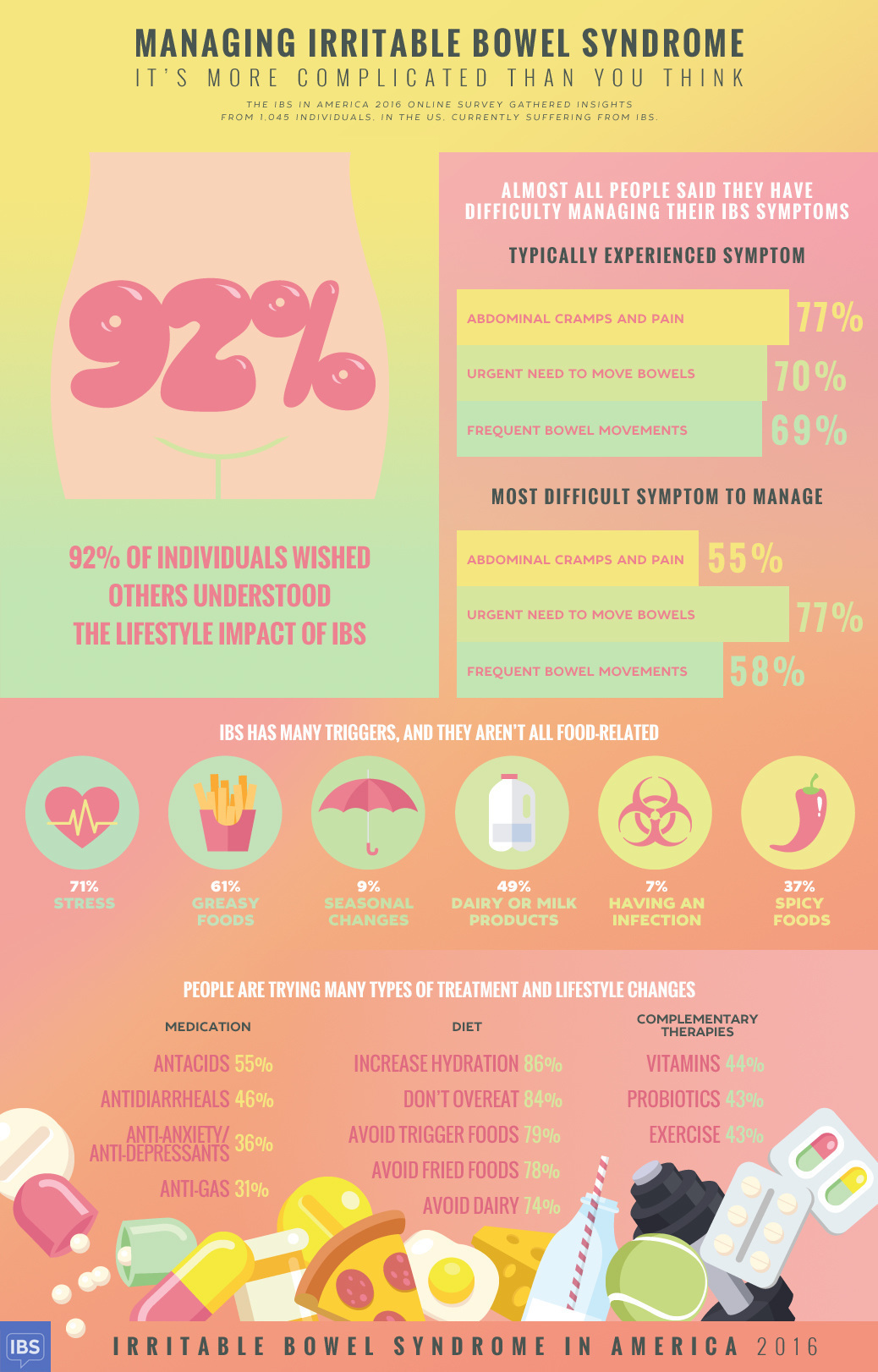
The numbers of new reported cases of irritable bowel syndrome (IBS) kept increasing into the 21st century when they reached almost epidemic proportions. As the amount of information available on the Internet exploded, so did the web searches about IBS. But then the disorder "came out of the closet", and google searches for "irritable bowel syndrome" started to dwindle, reaching a quarter of what they used to be at the peak. This downtrend mirrored ambulatory data (National Ambulatory Medical Care Survey and the National Hospital Ambulatory Medical Care Survey) showing that by 2010, the rate of IBS-related visits decreased roughly by 37%.
Is IBS no longer a problem?
|
|
|
10-20 years ago, doctors were experimenting with many different medications to address IBS complaints (especially medicines used to alleviate depression and supplement fiber), but now they are more likely to prescribe non-medication therapies: diet/nutrition counseling, mental health counseling, and/or stress management. Among prescribed medications, there was increased use of gastrointestinal-specific antibiotics and probiotics, but also laxatives, proton pump inhibitors (for heartburn), antiemetics (against nausea), bile acid sequestrants (for diarrhea), opioid and non-opioid analgesics (p=0.001 for each). Prescription of fiber (p=0.001), antidepressants (p=0.002), antacids (p=0.010), and histamine-2 receptor antagonists (p=0.001) significantly decreased.
Modern IBS patient is more informed. Modern doctors know more about IBS. They know it's not in your head and even started suggesting this is a disease, not a syndrome. But diagnostic tests confirming IBS are still lacking and so are answers to many questions.

Gluten-free has been one of the biggest diet trends that made social events much less isolating for IBS sufferers with gluten and wheat sensitivities. Low sugar and Paleo were also helpful to many. But low FODMAP diet seemed to be most beneficial for IBS. Yet, even this diet might not be a cure-all for IBS and can't be recommended in the longer term.

Social support is another important factor. Analyses indicated that it reduces severity of IBS symptoms, suggesting that the mechanism by which social support alleviates pain is through a reduction in stress levels.
And so IBS sufferers keep joining online support groups. In the last 5 years, IBSgroup.org got 25 thousand more sign ups, growing from 41 to over 66 thousands. New IBS support groups on Facebook merged, some as large as 11 thousand members. Yet, as a new US survey reveals, IBS sufferers see healthcare providers and the public in general lacking in empathy and understanding. The condition is still difficult to diagnose and often even more difficult to treat.
Afraid no more, but still in search of empathy and cures.



 RSS Feed
RSS Feed
